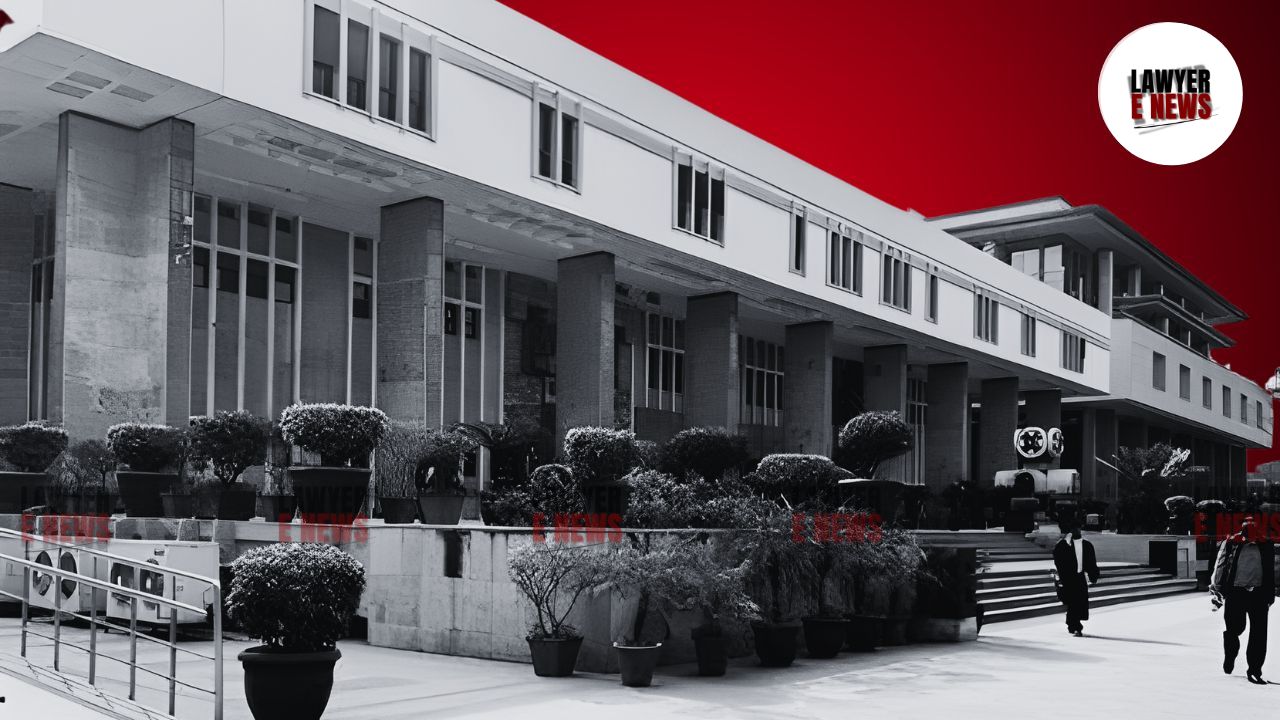-
by Admin
15 February 2026 5:35 AM



In a latest judgement, Delhi High Court, in a landmark ruling in Munna & Anr. v. Municipal Corporation of Delhi, directed the Municipal Corporation of Delhi (MCD) to pay ₹10 lakhs as compensation for the tragic death of a 17-year-old boy, Master Sonu. The Court held MCD liable for negligence and invoked the principle of "res ipsa loquitur," establishing a precedent for compensation in cases of state negligence under Article 226 of the Constitution of India.
The petitioners, Munna and Smt. Mumtaz, sought compensation for the death of their minor son, Master Sonu, who died on July 27, 2007, after a slab from an MCD-owned quarter fell on him. The incident occurred when the deceased was returning home. Despite being immediately rushed to the G.T.B. Hospital, Sonu succumbed to his injuries. The petitioners argued that MCD failed to maintain the premises properly, which led to this tragic incident. The property was in a dilapidated state, and MCD did not take necessary safety measures like putting up warning signs or deploying security personnel. The petitioners claimed that this negligence amounted to a dereliction of duty.
The central issue before the Court was whether compensation for negligence resulting in death could be sought under Article 226. The petitioners argued that MCD's failure to maintain the property constituted a violation of the right to life under Article 21 of the Constitution. They cited precedents where courts have held that public law remedy can be used to claim compensation for violations of fundamental rights.
MCD, on the other hand, argued that the writ petition was not maintainable under Article 226, claiming there was no negligence on their part. They alleged that the deceased was trespassing and that an alternative route was available to him. MCD further contended that the property was adequately maintained, and no lapse on their part led to the incident.
Justice Purushaindra Kumar Kaurav observed the established legal position that constitutional courts, under Articles 32 and 226, have the power to grant compensation in cases of human rights and fundamental rights violations. The Court stated:
"It is a settled law that the Constitutional Courts while exercising powers under Article 32 and Article 226 of the Constitution of India can pass an order directing payment of compensation in cases of violation of human rights and fundamental rights which amount to a Constitutional tort."
The Court referred to the principle of "res ipsa loquitur," which allows for the presumption of negligence in cases where the state is directly responsible for an incident, and the facts are undisputed. Quoting from the judgment in Shagufta Ali v. Govt. of NCT Delhi & Ors, the Court noted:
"Public law remedy can be resorted to and monetary compensation can also be awarded in cases of violation of Article 21 of the Constitution of India."
The Court found that the MCD had admitted ownership of the property and that the premises were in a dangerous condition. The Court observed that MCD was statutorily bound under Section 348 of the Delhi Municipal Corporation Act, 1957, to ensure the safety of its properties. However, the MCD failed to comply with these statutory obligations:
"It is thus vividly observed that the respondent-MCD had the prior knowledge of its quarters being in a dangerous and dilapidated condition. Thus, the fact that the respondent-MCD was negligent in maintaining the safe condition of the said quarters is manifestly evident from the record."
The Court held that MCD's negligence was evident and that the principle of "res ipsa loquitur" applied. It ordered MCD to pay a lump sum of ₹10 lakhs as compensation along with a simple interest rate of 6% per annum from the date of death (July 27, 2007) until realization. The Court further noted that failure to comply would result in an additional interest rate of 10% per annum.
Date of Decision: September 12, 2024
Munna & Anr. v. Municipal Corporation of Delhi
